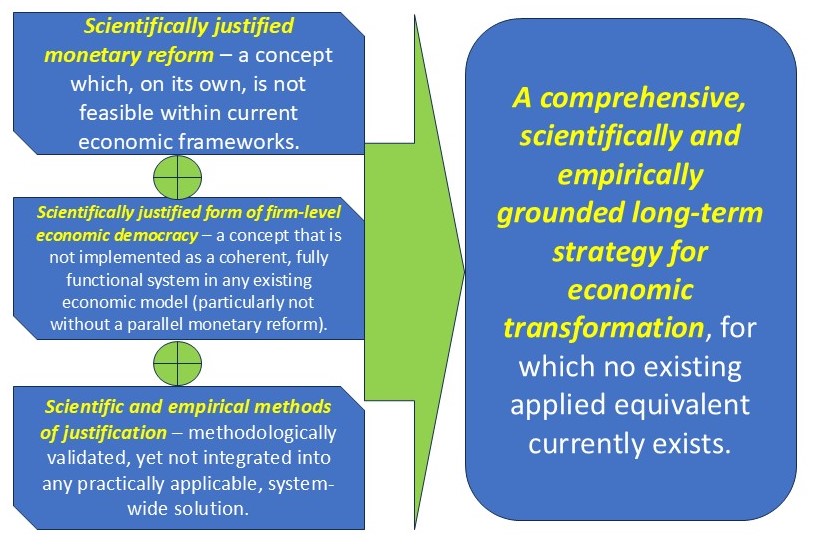
ISREP – a new scientific think tank
The project develops the first unified framework that connects economic mechanisms with the psychology of power and explains the emergence of inequality, systemic instability, and power reproduction in modern economies. This work now constitutes the first long-term systemic economic strategy to undergo full peer-reviewed scientific validation, with its foundational article accepted for publication in the International Review of Applied Economics (Scopus Q2). Accepted manuscript here.
While contemporary economics typically examines financial system dysfunction and the concentration of power in isolation, the psychology of power describes these phenomena in detail at the micro level — including scapegoating, ostracism, the toxic triangle, dominance behavior, and the effects of concentrated or absolute power on hierarchical structures and the dynamics within them — yet their connection to economic institutions and macro-level processes remains insufficiently explored.
This project integrates these insights into coherent disciplinary frameworks and into a common multidisciplinary model, enabling a more precise identification of the root causes of today's systemic problems and the formulation of empirically grounded solutions. Its aim is to establish a new line of thought in which conclusions and policy recommendations arise from a broader and deeper understanding of societal dynamics. As these foundations continue to strengthen, ISREP is evolving into an independent scientific think tank with growing international relevance.
Beyond developing this integrated framework, ISREP's mission is also to explain why even well-designed, evidence-based reforms often remain politically or institutionally blocked. By extending its research into the psychology of collective behavior and power maintenance, ISREP analyses the deeper mechanisms that hinder constructive change — not only in policy design, but in its adoption and acceptance within society. This dimension is currently being formalised in a second scientific article now in the editorial process of a Q1-ranked journal, further strengthening the interdisciplinary basis of the initiative.
Through this dual perspective, ISREP aims to provide a realistic pathway toward long-term, functional economic transformation.
Breakthrough Scientific Contribution
- connecting previously isolated problems within the economic system,
- presenting the first empirically grounded and realistically implementable architecture of an economic model — now peer-review validated,
- integrating key psychological mechanisms of power into a unified explanatory framework,
- linking the micro and macro levels through a behavioural-observation dataset as an analytical bridge,
- developing a new mechanism that explains the reproduction of power, instability, and systemic failures.
Breakthrough in economics:

Expected outputs of the initial theoretical-grounding phase
- Monograph 1 (~700 pages): formalisation of the model, empirical validations; suitable for scientific peer review. The scope and structure suggest the potential for a major contribution to current debates in economics.
- Monograph 2 (300–400 pages): a peer-reviewable scientific monograph on the dynamics of power.
- 4–5 peer-reviewed journal articles, including at least one in the field of the psychology of power.
- Expert analytical papers and technical reports.
- Interdisciplinary workshops, conference presentations, a project website, and additional dissemination activities.
Why Low-Risk – High-Feasibility – High-Gain?
- addresses one of today's key challenges: the interplay between economics and the psychology of power,
- introduces an original authorial concept with a high degree of intellectual property, already scientifically validated through peer review,
- has strong potential to influence scientific understanding and public debate,
- it delivers extensive and high-quality scientific outputs in an exceptionally effective and long-term sustainable way,
- is grounded in 12–15 years of systematic research,
- introduces a new and previously unexplored perspective on global systemic dynamics,
- independent scientific think tanks committed to depth, transparency, and intellectual integrity have become increasingly rare,
- a strong potential to support the development of a major scholarly contribution in economics.

